Written by Bryan Dearsley
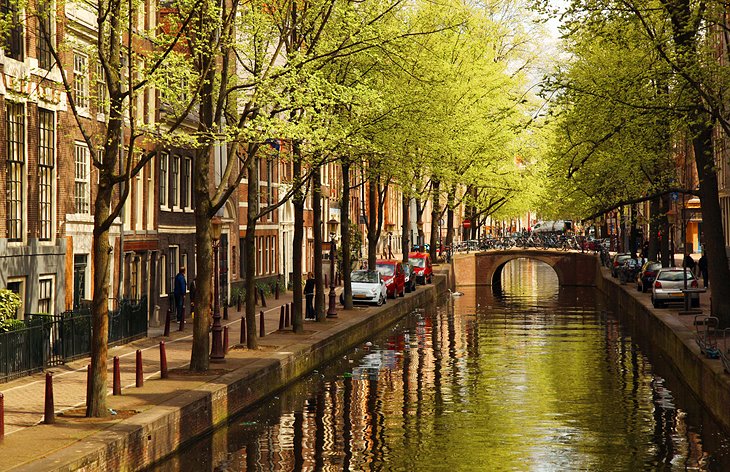
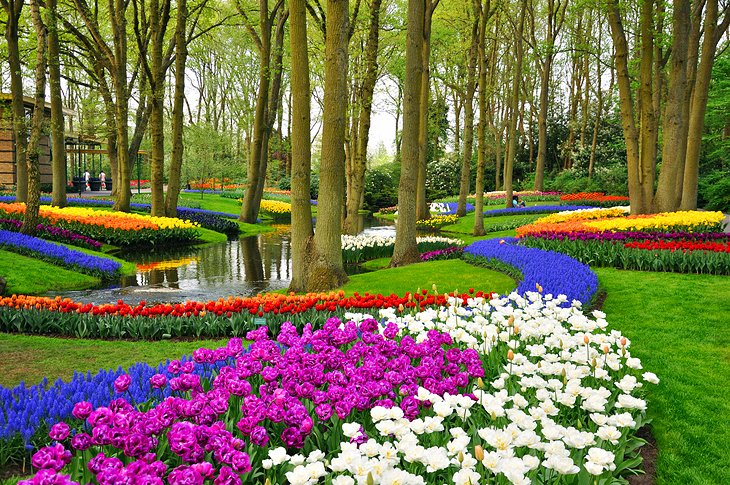
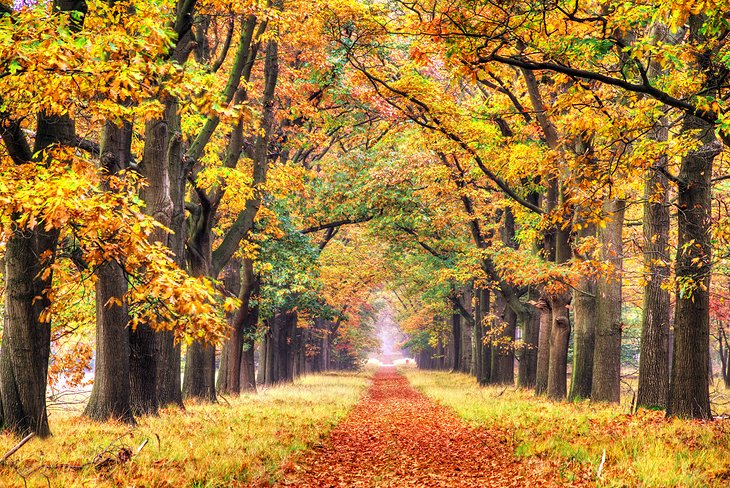
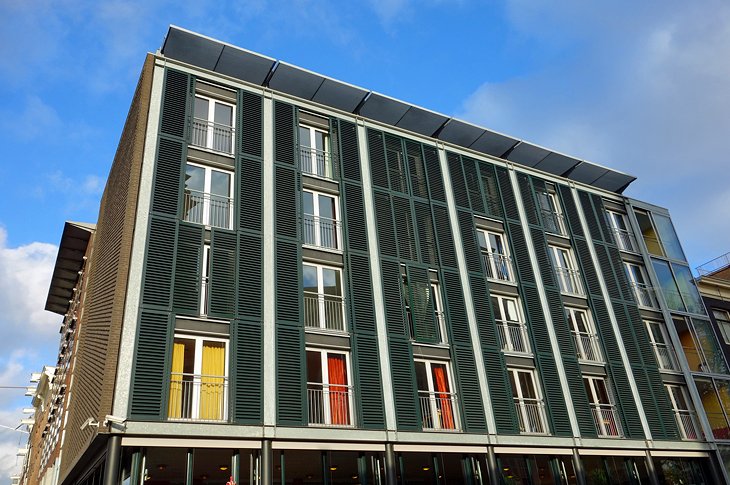
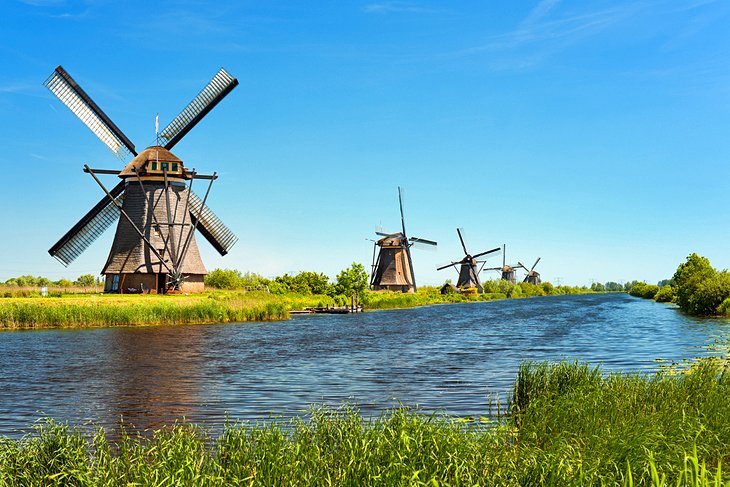
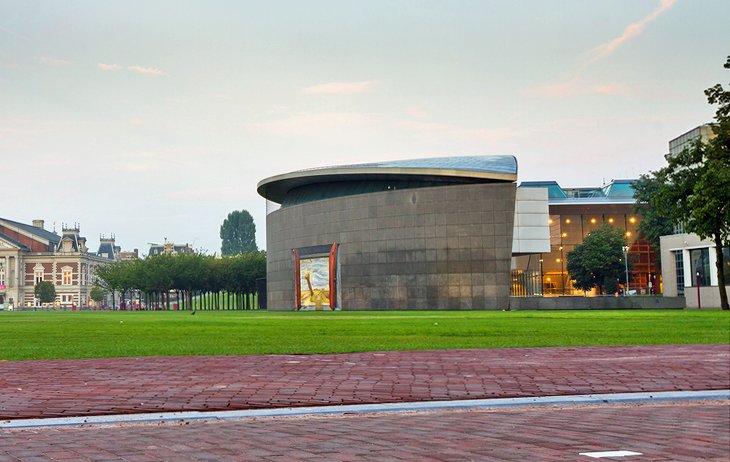
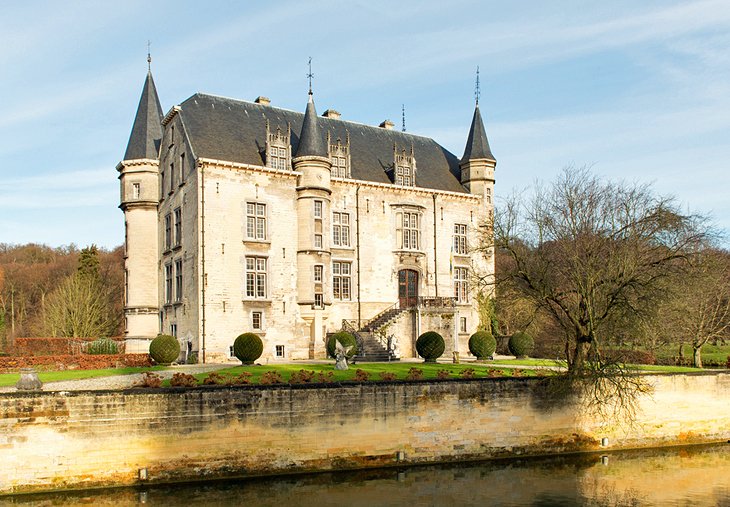
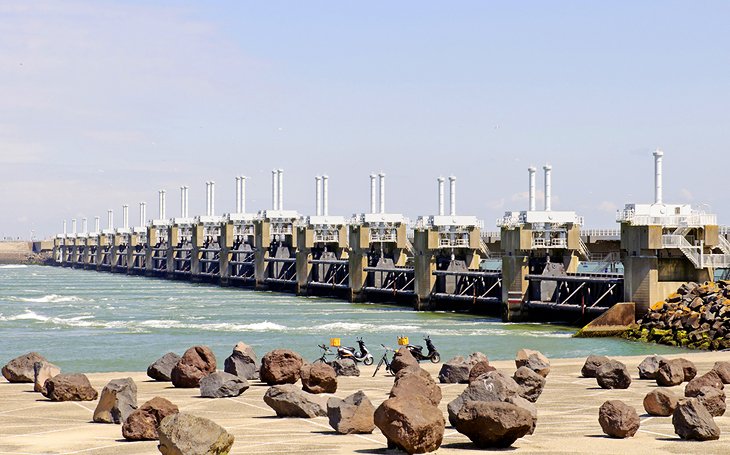
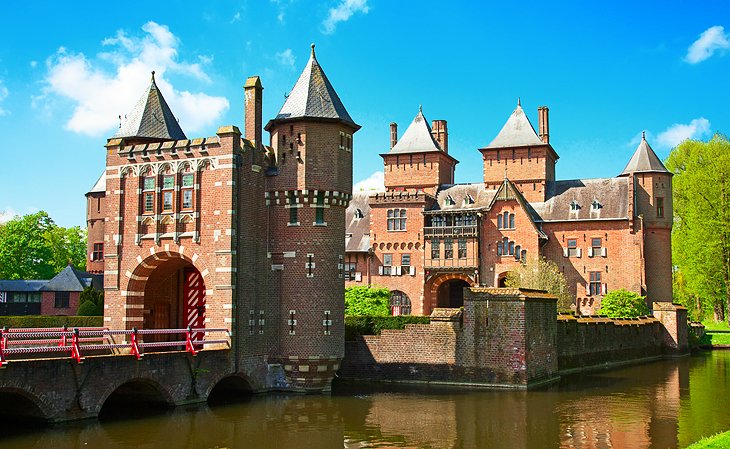 Near the lovely old city of Utrecht,
the fourth largest in the Netherlands, Kasteel De Haar makes for an
excellent day trip. The largest fortification in the country, this
spectacular castle - built by the famous Dutch architect, PJH Cuypers -
required so much land (it sits on a spectacular 250-acre park) that the
entire village of Haarzuilens had to be relocated to accommodate
it. While the original castle site was established in the 14th century,
this newer structure dates from 1892 and is well worth taking the time
to explore. Inside, you'll be rewarded by impressive collections of
antiques, furniture, paintings, and tapestries, but it's the gardens
that really draw the crowds - along with the castle's fairytale looks.
Near the lovely old city of Utrecht,
the fourth largest in the Netherlands, Kasteel De Haar makes for an
excellent day trip. The largest fortification in the country, this
spectacular castle - built by the famous Dutch architect, PJH Cuypers -
required so much land (it sits on a spectacular 250-acre park) that the
entire village of Haarzuilens had to be relocated to accommodate
it. While the original castle site was established in the 14th century,
this newer structure dates from 1892 and is well worth taking the time
to explore. Inside, you'll be rewarded by impressive collections of
antiques, furniture, paintings, and tapestries, but it's the gardens
that really draw the crowds - along with the castle's fairytale looks.
While most visitors to the Netherlands (often referred to as Holland) focus on Amsterdam,
the country's vibrant capital with its great museums and art galleries,
there are many charming towns and villages in this small yet
fascinating country to explore. And because the country is so flat, it's
extremely easy to do at least a little sightseeing the Dutch way: by
bicycle. Many communities actively encourage the use of pedal-power and
provide bikes to explore the sights at no cost. However you choose to
see the Netherlands, you're guaranteed a great time in one of the
friendliest and most liberal cultures in Europe.
1 Exploring Amsterdam's Canals

Exploring Amsterdam's Canals
Like Venice,
that other famous city built on water, the one enduring memory any
visitor to Amsterdam will have is of time spent exploring the city's
wonderful canals. While many of Amsterdam's best tourist attractions can
be easily accessed by boat tour or water taxi - including most of the
major museums and art galleries - there's much to be gained by simply
strolling along the smaller, quieter streets that line the waterways.
One such neighborhood is the Grachtengordel with its many small
bridges and quaint 17th-century homes. You'll be rewarded as you explore
these 400-year-old streets by countless examples of beautiful
architecture, small boutique shops, cafés, and hotels, as well as many
quaint colorful gardens.
2 Keukenhof: The Garden of Europe

Keukenhof: The Garden of Europe
Think of the Netherlands, and you'll inevitably think of tulips, the
country's most popular flower. And there's nowhere better to enjoy its
rich floral bounty than at the Keukenhof, otherwise known as the Garden
of Europe. On the outskirts of Lisse, in what's widely considered
the "bulb belt" of the Netherlands, Keukenhof is the largest public
garden in the world encompassing more than 70 acres of what was once the
former kitchen (or "keuken") garden of a large country estate. Along
with its excellent restaurants, sunny patios, and exhibitions - not to
mention its more than 700 varieties of tulips - the site is home to the
world's largest open-air flower show. The charm of Keukenhof lies in its
endless variety of color which, thanks to its massive commercial hot
houses, is almost a year-round occurrence. In them, you'll see endless
rows of flowering tulips, along with thousands of hyacinths, crocuses,
and daffodils.
4 Hoge Veluwe National Park

Hoge Veluwe National Park
You may be surprised to learn that the Netherlands, a relatively
small country, boasts one of the world's most diverse national park
programs. The largest is Hoge Veluwe National Park between Arnhem
and Apeldoorn. Covering nearly 13,800 acres, this national park is the
largest continuous nature reserve in the country, as well as being one
of the most popular day trip destinations for locals and visitors alike.
Featuring dense woodlands in the north, as well as a fascinating
sculpture park, the area was once a country estate and hunting reserve,
and to this day is home to many red and roe deer. The best-preserved
part of the park encompasses an area of dramatic dunes interspersed with
heath and woodland and interrupted in the south and east by moraines up
to 330 feet high. It's also a popular area for birdwatching, as well as
hiking and biking (visitors can access bikes for free).
5 Anne Frank Museum, Amsterdam

Anne Frank Museum, Amsterdam
Franklin Heijnen
The Anne Frank Museum is a must-see when in Amsterdam. On Prinsengracht, in the home where Anne's family hid for much of WWII (they were Jewish refugees from Frankfurt),
is where this remarkable girl wrote her famous diary. Although she died
just two months before the war ended, her legacy lives on through her
words, which have since been translated into 51 languages. The back of
the fully-restored house where the Frank family had their hiding place
has been kept in its original state as much as possible and is a
poignant monument to a tragic slice of world history and a brave little
girl who continues to inspire people around the globe.
6 The Windmills of Kinderdijk

The Windmills of Kinderdijk
On the River Noord between Rotterdam and Dordrecht
is the famous village of Kinderdijk ("Children's Dike"), which takes
its name from an incident during the St. Elizabeth's Day flood of 1421
after a child's cradle had been stranded on the dike. The big draw these
days are the fantastically preserved 18th-century windmills. Now UNESCO
World Heritage Sites, the 19 Kinderdijk windmills, built between 1722
and 1761, are the largest surviving concentration of windmills in the
Netherlands. Originally used to drain the fenlands, these majestic
buildings with their impressive 92-foot sails are open to the public
from April to October, including special Mill Days when the sails are
set in motion.
7 Van Gogh Museum, Amsterdam

Van Gogh Museum, Amsterdam
As befits one of the world's greatest artists, the spectacular Van
Gogh Museum in Amsterdam is ranked an impressive 35th in the top art
museums globally, attracting almost 1.5 million visitors each year. Home
to the world's largest collection of Van Gogh paintings -many donated
by the artist's family - this impressive gallery and museum was
specially built to showcase the more than 200 paintings, 500 drawings,
and 700 letters in its vast collection. Works by his contemporaries are
also on display. If you're only able to visit one of the many excellent
art museums in the Netherlands, make it this one.
8 Historic Valkenburg

Historic Valkenburg
For those looking for a little ancient history, the Netherlands is
not without its own medieval (and earlier) attractions. Romantic little
Valkenburg, in the picturesque Geul Valley, boasts the country's only
hilltop castle. Long a popular holiday resort, the town's other big
draws are its many caves and the spa facilities at Thermae 2000,
one of the largest such establishments in the Netherlands. In addition
to the ruins of the 12th-century castle on Dwingelrots (Castle Rock),
there's also the interesting 14th-century St. Nicolaaskerk Basilica. Another highlight is the town's famous Christmas Market (mid-November to December 23rd) held in the Velvet Caves, the maze of old passageways leading to and from the castle.
9 Zeeland's Spectacular Dikes

Zeeland's Spectacular Dikes
Incorporating the deltas of the Rhine, the Maas, and the Schelde
Rivers, Zeeland includes the numerous islands and peninsulas of the
southwestern section of the Netherlands. Consisting of some of the
world's most recent land formations, much of the area is below sea level
and therefore reliant upon impressive dikes as well as modern flood
prevention techniques. As you travel the area, you'll see evidence of
the engineering project known as the Delta Works. These massive
structures - basically hi-tech dams - can control how much water enters
the area's key estuaries from the North Sea. Consisting of dams,
sluices, locks, dikes, and storm surge barriers, this awe-inspiring
project has been declared one of the Seven Wonders of the Modern World.
10 Kasteel De Haar

Kasteel De Haar
No comments:
Post a Comment